Venison, also known as deer meat, has long been a favorite among hunters and outdoor enthusiasts. Its rich, gamey flavor and lean texture make it a sought-after cuisine. However, there’s always a growing curiosity and debate about whether it’s safe to eat venison raw.
We have done some research and let’s dive into the details and find out.
Can You Eat Venison Raw?
Eating raw venison comes with its own set of risks. Like any raw meat, raw deer meat can contain dangerous bacteria and parasites.. Common culprits include E. coli, Salmonella, and Toxoplasma gondii. It is important to handle and prepare raw venison carefully as these pathogens have the potential to cause severe foodborne illnesses.
While some people enjoy the taste and texture of raw venison in dishes like tartare or carpaccio, it’s essential to be aware of the potential health risks. Understanding the dangers can help you make an informed decision about whether to consume raw venison.
Health Risks of Eating Raw Venison
We already said that bacterial contamination is a significant concern when eating raw venison. E. coli and Salmonella are notorious for causing severe gastrointestinal issues, including diarrhea, vomiting, and abdominal pain.
In some cases, these infections can lead to more serious complications, especially in vulnerable populations such as young children, the elderly, and those with weakened immune systems.
Parasitic infections are another risk. Toxoplasma gondii, a parasite commonly found in undercooked or raw meat, can cause toxoplasmosis. We can find documented cases of foodborne illnesses. This condition can be particularly dangerous for pregnant women, as it can lead to severe complications for the unborn child.
Nutritional Benefits of Venison
Though it may be dangerous, venison has its own nutritional benefits. It’s a lean source of protein, making it an excellent choice for those looking to maintain a healthy diet. Venison is rich in essential vitamins and minerals, including iron, zinc, and B vitamins, which are vital for overall health and well-being.
Compared to other meats, venison stands out for its low fat content. This makes it a healthier option for those monitoring their fat consumption. The high protein content also helps in muscle repair and growth, making venison a great addition to an active lifestyle.
FDA Guidelines for Consuming Raw Meat
The FDA provides clear guidelines to minimize the risks associated with consuming raw venison.
Firstly, it’s recommended to cook venison to an internal temperature of at least 160°F (71°C) to kill harmful bacteria and parasites. If you prefer to eat venison raw, consider freezing it first. Freezing the meat at -4°F (-20°C) for at least three days can help kill parasites.
Preventing cross-contamination is also crucial. Always use separate cutting boards and utensils for raw meat and other foods. Wash your hands thoroughly after handling raw venison to avoid spreading bacteria.
Following these guidelines can significantly reduce the risk of foodborne illnesses.
How to Safely Prepare Raw Venison?
If you plan to enjoy raw venison, it is better to source it from reputable suppliers. Ensure that the meat comes from a trusted source that follows strict hygiene and safety standards.
Or, if you are a good hunter and plan to eat the deer you harvest yourself, make sure to follow these essential steps to ensure the meat is safe for consumption:
- Field Dressing: Properly field dress the deer as soon as possible after the kill. This involves removing the internal organs to prevent the growth of bacteria and ensure the meat stays fresh. Use clean, sharp hunting knives and wear gloves if possible to maintain hygiene. Next, rapidly cooling the meat is crucial. Hang the deer in a cool, dry place and allow it to air out. If the weather is warm, consider packing the body cavity with ice to keep the temperature down.
- Processing the Meat: When you’re ready to process the deer, work in a clean environment. Sanitize your workplace, knives, and other equipment before and after use. If you’re not good at butchering, you can take it to a professional meat processor. Make sure to check out: How To Protect Yourself When Dressing Game?
- Freezing the Meat: As mentioned earlier, freezing the venison at -4°F (-20°C) for at least three days can help kill parasites. This step is particularly important if you plan to consume the meat raw.
- Inspecting the Meat: Always inspect the meat for any signs of spoilage, such as an off smell, discoloration, or a slimy texture. If you notice any of these signs, it’s best to discard the meat to avoid the risk.
- Testing for Diseases: If you hunt in areas known for chronic wasting disease (CWD) or other deer-related illnesses, you should have your deer tested. Many wildlife agencies offer testing services, and this can provide peace of mind that your meat is safe to eat.
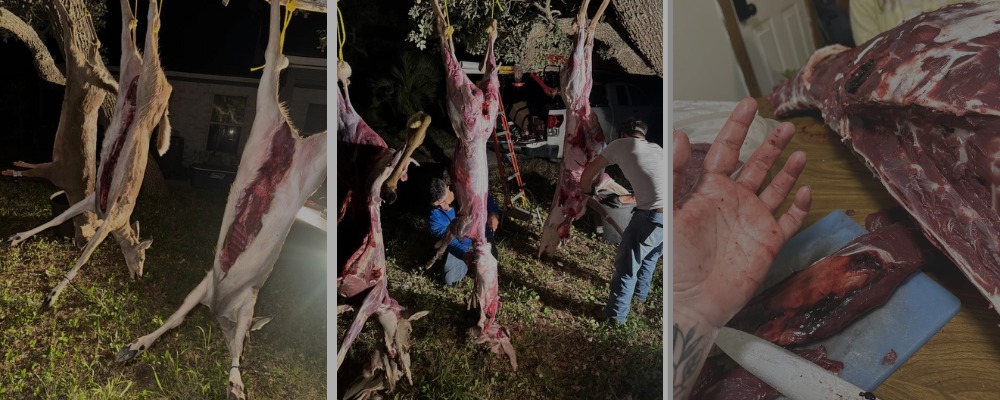
Does Wild Game Meat Get Recalled?
Wild game meat, including venison, can sometimes be recalled due to concerns about chronic wasting disease (CWD). CWD is a condition caused by prions that impacts deer and other cervids, and it can potentially contaminate the meat.
Although no proof exists that CWD will be transmitted to humans, the risk of contamination can still lead to precautionary recalls.
Below we have discussed the meat recall issue with some of our hunters, we found out that the reality of wild game meat safety is more complex than it may be. Many hunters shared insights about the risks and regulations surrounding the consumption of deer meat and other game.
Among them, most hunters have been aware of diseases such as Chronic Wasting Disease and Brucellosis that can affect deer and other wildlife. While wild game doesn’t go through the same recall process as farmed meat, hunters report that local wildlife agencies issue warnings when they find health risks. For example, in areas where deer are known to have CWD, the government department will require hunters to send in samples for testing before they can process the meat.
Other hunters pointed out that even if there aren’t official recalls, they still get health warnings. In places like Missouri, hunters may not face meat recalls, but local agencies inform them about the potential health risks of eating game from certain areas. This helps them make safer choices when it comes to their harvest.
A big part of our conversation was about personal responsibility. Many hunters mentioned how important it is to know how to check and prepare game meat. By spotting any signs of illness in the animal before you process it, you can help avoid health risks when eating the meat.
We also heard some concerns about how wild game meat isn’t regulated. Some hunters like the freedom to hunt and eat wild game without too many rules, while others think we should do more testing and monitoring to keep things safe.
In short, whether or not deer meat gets recalled, hunters should stay informed about announcements from health authorities and properly discard any affected meat.
It’s also wise to have your harvested deer tested for CWD if you hunt in areas where the disease ever happened.
Frequently Asked Questions About Raw Venison
Is farmed venison safer to eat raw than wild venison?
There may be stricter health and safety rules for farmed venison, but it still has potential dangers. For both farmed and wild venison, we should treat them carefully and cook well.
What are the signs of spoiled venison?
Spoiled venison may have a sour or off smell, a slimy texture, or discoloration. Don’t hesitate to throw out the meat if you notice any of these signs.
Can pregnant individuals eat raw venison?
Pregnant individuals should avoid eating raw venison due to the risk of toxoplasmosis and other foodborne illnesses. It’s safer to consume fully cooked venison.
Can dogs eat raw deer meat?
While some dog owners feed their pets raw diets, including raw deer meat, it’s important to be cautious. Raw meat can carry bacteria and parasites that may harm your dog. You can consult with your veterinarian before giving raw venison to the dogs.
How long can raw deer meat stay in the fridge?
Raw deer meat can be safely stored in the refrigerator for up to 2-3 days. For longer storage, it’s best to freeze the meat so you can store it for months. Check more information: How Long Does Deer Meat Keep In The Freezer?
What happens if you eat raw deer meat?
Eating raw deer meat can result in harmful bacteria and parasites, leading to serious illnesses. Symptoms may include nausea, vomiting, diarrhea, abdominal cramps, and fever. In severe cases, it can lead to more serious health complications. Adopt any preventive measures before you consume any raw meat.
Conclusion
Eating raw venison, or raw deer meat, can be risky due to the potential for bacterial and parasitic contamination. You can freely enjoy the unique taste but it’s crucial to prioritize safety.
Following FDA guidelines, sourcing meat from reputable suppliers, and handling properly can help reduce the risks. Ultimately, whether you choose to consume venison raw or cooked, staying informed and cautious is key.
What are your opinions about raw venison? Have you ever got raw deer meat recall? Share your experience and opinion in the comments below.


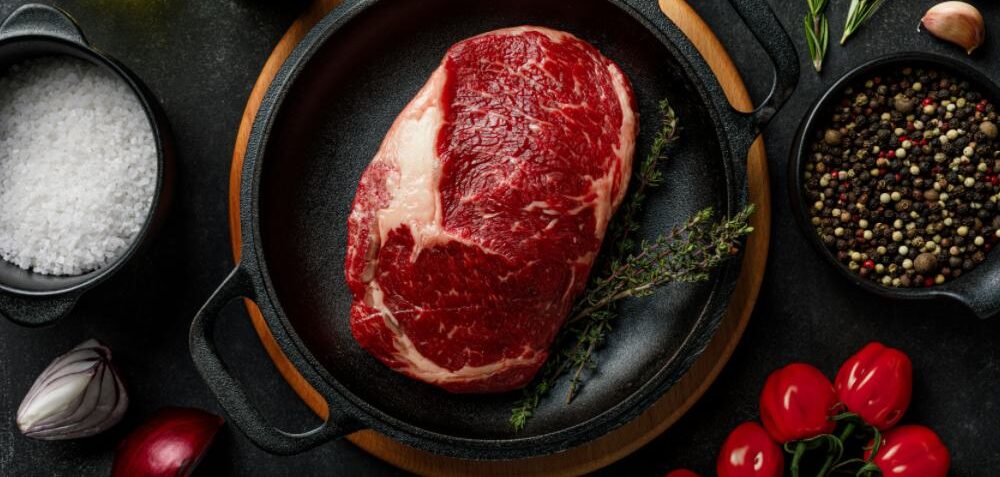
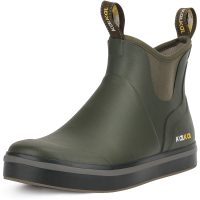







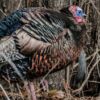
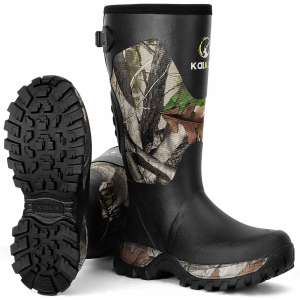

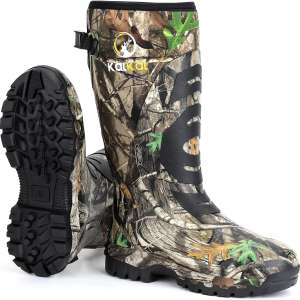
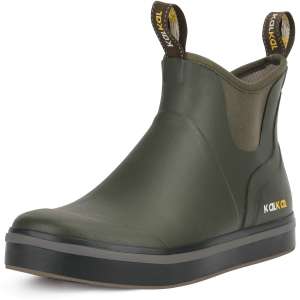




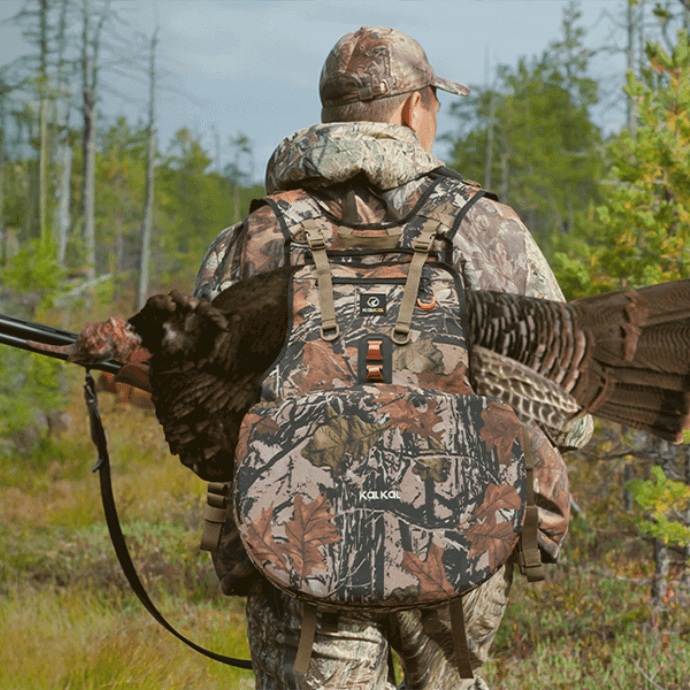
Leave a reply